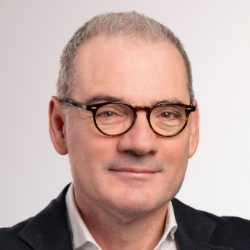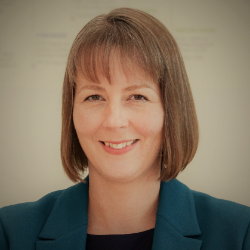PLENARY KEYNOTE SESSION
wednesday, 24 April 2024
11:15 Plenary Chairperson's Remarks
Dario Neri, PhD, CEO and CSO, Philogen; Professor, Chemistry and Applied Biosciences, ETH Zurich
11:20 PLENARY KEYNOTE PRESENTATION: Vaccines and T Cell Strategies to Mobilise Neoantigen-Specific Responses
 George Coukos, MD, PhD, Director, Oncology Department, Lausanne University Hospital, and Director, Ludwig Institute for Cancer Research Lausanne Branch
George Coukos, MD, PhD, Director, Oncology Department, Lausanne University Hospital, and Director, Ludwig Institute for Cancer Research Lausanne Branch
11:55 PLENARY KEYNOTE PRESENTATION: Afami-cel: The Journey from TCR Engineering towards Commercial Cell Therapy
 Joanna Brewer, PhD, CSO, Adaptimmune R&D
Joanna Brewer, PhD, CSO, Adaptimmune R&D
Afami-cel is a first-generation engineered TCR-T cell product targeting MAGE-A4 expressing solid tumors. Afami-cel has the potential to be the first marketed product of its kind and Adaptimmune is close to completing its BLA submission. Afami-cel has demonstrated substantial clinical benefit for people with synovial sarcoma who have had multiple prior lines of therapy. This is the story of afami-cel from early discovery through clinical development, and commercial strategy.
Biographies:
Prof. Dr. George Coukos is Full Professor at the Faculty of Biology and Medicine in Lausanne, Director of the Department of Oncology at the University Hospital (CHUV) and University of Lausanne (UNIL), and Director of the Ludwig Institute for Cancer Research Lausanne Branch. He is also the Head of Immuno-Oncology at CHUV. A leading investigator in the field of tumor immunology and ovarian cancer, he is the PI of many early-phase clinical studies in cancer immunotherapy. Furthermore, he is interested in elucidating fundamental mechanisms in the tumor microenvironment (TME) that determine the fate of antitumor immunity, focusing on the study of the deregulation of tumor-infiltrating lymphocytes (TILs). These studies are expected to yield novel pharmacologic approaches to restore antitumor immunity as well as novel methodologies to select and expand TILs for adoptive therapy. He is also involved in the study of the tumor vasculature as a barrier to effective T cell infiltration in many tumors, but also as a potential target for therapy. Prof. Coukos is pursuing T cell engineering approaches as a means to address the deregulation of T cells in the TME, and for redirecting them against relevant tumor targets, including the vasculature, with the ultimate goal of translating basic discovery to the clinic.
Jo Brewer is the CSO of Adaptimmune and has over 20 years' experience in immunotherapy research in oncology. She was one of the founding scientists at Adaptimmune, where she built multiple research teams working on TCR T-cell therapies, including afamicel (MAGE A4) and lete-cel (NY-ESO) products for sarcoma as well as follow on next gen products and an allogeneic platform based on edited induced pluripotent stem cells.